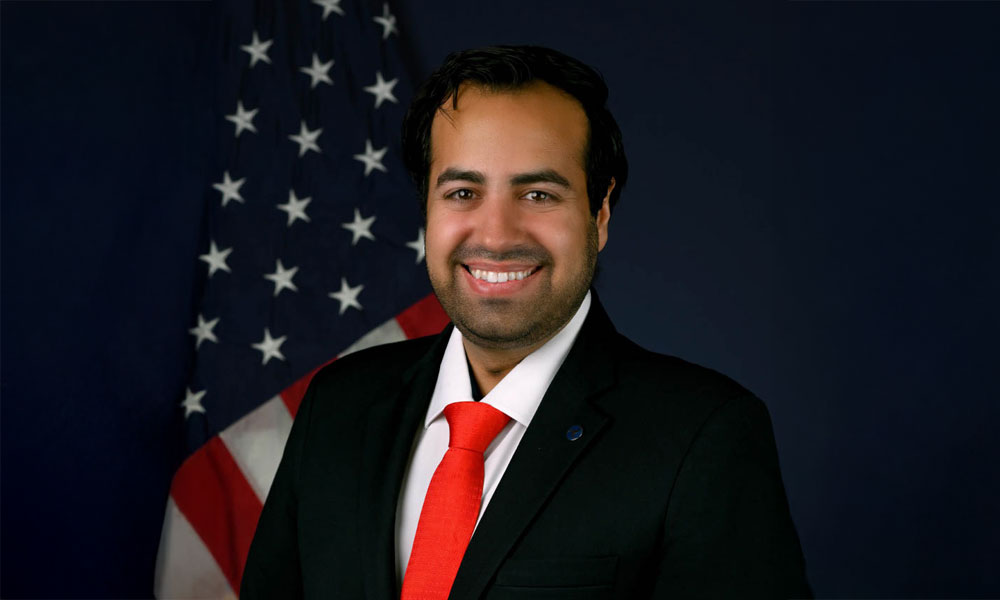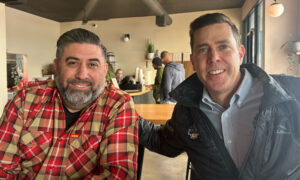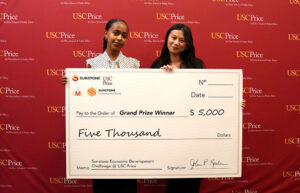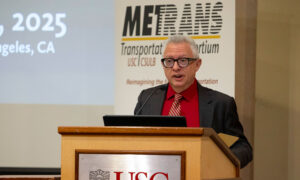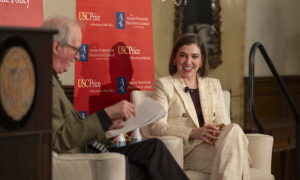President Donald Trump has appointed Shaz Umer, an alum of the USC Price School of Public Policy, to a senior role in the U.S. Department of Transportation (DOT).
Umer, who has a Master of Urban Planning (MUP), spent much of his career working at technology startups shaking up transportation, from autonomous vehicle firms to household brands like Lyft and Grubhub.
We caught up with Umer to discuss his new appointment, his top policy priorities, and the role of technology in transportation. His interview was lightly edited for length and clarity.
What is your title and what will you do in your new role?
I serve as the Director of Strategic Initiatives in the Office of the Secretary at the U.S. Department of Transportation. I help advance the Secretary’s innovation agenda, focusing on research, policy, and technology programs that will shape the next generation of mobility. My work supports initiatives like the Advanced Research Projects Agency–Infrastructure, the Volpe National Transportation Systems Center, the Transportation Safety Institute, the Highly Automated Systems Safety Center of Excellence, and emerging federal strategies on safety, automation, Positioning, Navigation, and Timing (PNT) and Spectrum Management, and digital infrastructure. It’s all part of delivering on Secretary [Sean] Duffy’s vision to build more, build faster, build better, and build more beautiful infrastructure across our great nation.
How does it feel to be appointed by the U.S. president?
It’s deeply humbling and a little surreal. When you get that call, you realize you’re stepping into a role not just on behalf of a department but on behalf of the American people.
What do you see as the top priorities in transportation policy today?
Three things:
1. Safety: Too many lives are lost on our roads every year.
2. Resilience: We need infrastructure that can withstand a changing world.
3. Modernization: Technology moves faster than regulation. We must bridge that gap guided by common sense, responsibility, and a commitment to the American people.
In what notable ways is tech changing transportation, and how will your tech experience inform your work at DOT?
Tech is collapsing the distance between intent and action, whether it’s hailing a ride, getting groceries, or planning a transit trip. My time in startups taught me that speed without thought is chaos, but policy without innovation is stagnation. At DOT, I bring a translator’s mindset, helping government understand industry, and helping industry understand government. When you get those two speaking the same language, you unlock real progress.
Which emerging technologies are you keeping an eye on?
I hold a pilot’s license and am interested in how advanced air mobility, specifically eVTOLs [Electric Vertical Take-off and Landing aircraft], can be integrated into our existing, often congested, airspace. This isn’t science fiction; it’s a real opportunity to add a new, scalable mode of transportation to our skies. The U.S. is in a global race to lead this emerging sector, and the stakes are high. We have a chance to define the rules of the air, and ensure we stay ahead of global competitors like China in shaping the future of mobility.
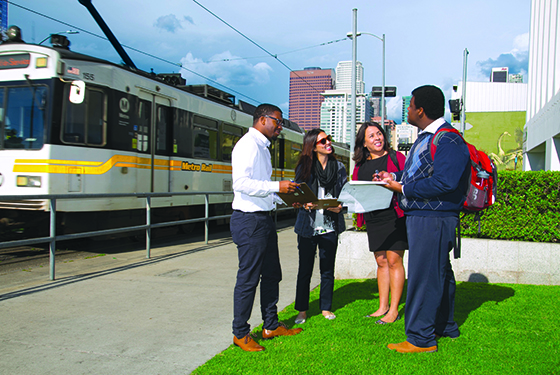
Master of Urban Planning
Make Cities More Just, Livable & Sustainable
USC’s MUP degree trains students to improve the quality of life for urban residents and their communities worldwide.
Find Out MoreWhat got you interested in transportation?
In 2012, I lost a mentor and fellow Eagle Scout, who was 21, in a car accident. That loss changed me. I changed my major to transportation policy because no family should go through that. Transportation isn’t just about getting from point A to point B. It’s about freedom, responsibility, and the backbone of a functioning economy. It connects families, strengthens communities, and keeps the country moving.
How did your MUP from USC Price help you in your career?
I’m proud to be a Trojan. The faculty pushed me to apply real-world thinking to real-world challenges. I graduated top of my class and was inducted into the Pi Alpha Alpha Honor Society, and left with more than a degree, I left with direction. One of my last research projects during the program focused on defining aerial rights-of-way for unmanned aerial systems to enable the delivery of critical medical supplies within LAX airspace. The proposal aimed to optimize drone routing for emergency response scenarios, reducing travel time for first responders and increasing access to life-saving materials in high-congestion urban environments.
